Background
Mr. Leary was born on October 22, 1920, in Springfield, Massachusetts, United States. His father, Timothy "Tote" Leary, was a dentist who left his wife Abigail Ferris when Leary was 14.









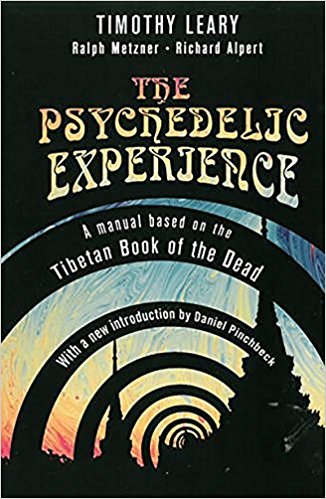
(“It is a book for the living as well as for the dying.”—L...)
“It is a book for the living as well as for the dying.”—Lama Govinda We are in the midst of a powerful psychedelic renaissance. After four decades of hibernation, the promise of the psychoactive ’60s—that deeper self-awareness, achieved through reality-bending substances and practices, will lead to greater external harmony—is again gaining a major following. The signs are everywhere, from the influence of today’s preeminent psychedelic thinker Daniel Pinchbeck, to the renewed interest in the legacy of Terence McKenna, and to the upsurge of collective, inclusive (and overtly tripped-out) cultural phenomena like the spectacle of Burning Man. The Psychedelic Experience, created in the movement’s early years by the prophetic shaman-professors Timothy Leary, Ralph Metzner, and Richard Alpert (Ram Dass), is a foundational text that serves as a model and a guide for all subsequent mind-expanding inquiries. In this wholly unique book, the authors provide an interpretation of an ancient sacred manuscript, The Tibetan Book of the Dead, from a psychedelic perspective. The Psychedelic Experience describes their discoveries in broadening spiritual consciousness through a combination of Tibetan meditation techniques and psychotropic substances. As sacred as the text it reflects, The Psychedelic Experience is a guidebook to the wilderness of mind and an indispensable resource from the founding fathers of psychedelia.
http://www.amazon.com/gp/product/0806516526/?tag=2022091-20
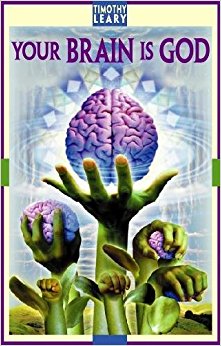
(This collection of essays, written by the poster boy of 1...)
This collection of essays, written by the poster boy of 1960s counterculture, describes the psychological journey Timothy Leary made in the years following his dismissal from Harvard, as his psychedelic research moved from the scientific to the religious arena. He discusses the nature of religious experience and eight crafts of God, including God as hedonic artist. Leary also examines the Tibetan, Buddhist, and Taoist experiences. In the final chapters, he explores man as god and LSD as sacrament. This collection of essays, written by the poster boy of 1960s counterculture, describes the psychological journey Timothy Leary made in the years following his dismissal from Harvard, as his psychedelic research moved from the scientific to the religious arena. He discusses the nature of religious experience and eight crafts of God, including God as hedonic artist. Leary also examines the Tibetan, Buddhist, and Taoist experiences. In the final chapters, he explores man as god and LSD as sacrament.
http://www.amazon.com/gp/product/1579510523/?tag=2022091-20

(Written in the psychedelic era, Turn On, Tune In, Drop Ou...)
Written in the psychedelic era, Turn On, Tune In, Drop Out is Timothy Leary at his best, beckoning with humor and irreverence, a vision of individual empowerment, personal responsibility, and spiritual awakening. Includes: o Start Your Own Religion o Education as an Addictive Process o Soul Session o Buddha as Drop-Out Mad Virgin of Psychedelia God's Secret Agent o Homage to Huxley o The Awe-Ful See-Er o The Molecular Revolution o MIT is TIM Backwards o Neurological Politics "Trickster is a major figure in American Indian folk Wisdom. Also in Sufi Tales a certain type of "rascal"-with a grin and a wink (and wisdom beyond wisdom) in the Zen tradition this is known as the School of Crazy Wisdom Timothy Leary-in his own inimitable way-has become the twentieth century's grand master of crazy wisdom " - Dr. Jeffrey Mishlove Written in the psychedelic era, Turn On, Tune In, Drop Out is Timothy Leary at his best, beckoning with humor and irreverence, a vision of individual empowerment, personal responsibility, and spiritual awakening. Includes: o Start Your Own Religion o Education as an Addictive Process o Soul Session o Buddha as Drop-Out Mad Virgin of Psychedelia God's Secret Agent o Homage to Huxley o The Awe-Ful See-Er o The Molecular Revolution o MIT is TIM Backwards o Neurological Politics "Trickster is a major figure in American Indian folk Wisdom. Also in Sufi Tales a certain type of "rascal"-with a grin and a wink (and wisdom beyond wisdom) in the Zen tradition this is known as the School of Crazy Wisdom Timothy Leary-in his own inimitable way-has become the twentieth century's grand master of crazy wisdom " - Dr. Jeffrey Mishlove
http://www.amazon.com/gp/product/1579510094/?tag=2022091-20
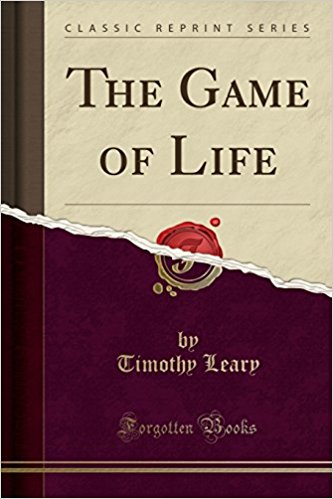
(Excerpt from The Game of Life Natural Election occurs at ...)
Excerpt from The Game of Life Natural Election occurs at every level of energy exchange. Aesthetic choice determines who bonds with whom. About the Publisher Forgotten Books publishes hundreds of thousands of rare and classic books. Find more at www.forgottenbooks.com This book is a reproduction of an important historical work. Forgotten Books uses state-of-the-art technology to digitally reconstruct the work, preserving the original format whilst repairing imperfections present in the aged copy. In rare cases, an imperfection in the original, such as a blemish or missing page, may be replicated in our edition. We do, however, repair the vast majority of imperfections successfully; any imperfections that remain are intentionally left to preserve the state of such historical works.
http://www.amazon.com/gp/product/1333317913/?tag=2022091-20
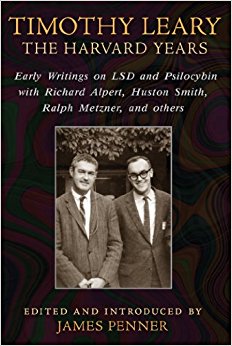
(The first collection of Leary’s writings devoted entirely...)
The first collection of Leary’s writings devoted entirely to the research phase of his career, 1960 to 1965 • Presents Leary’s early scientific articles and scholarly essays, including those on the Harvard Psilocybin Project, the Concord Prison Project, and the Good Friday Experiment • With an editor’s introduction that examines the Harvard Drug Scandal in detail as well as a critical preface for each essay On May 27, 1963, Dr. Timothy Leary and Dr. Richard Alpert were dismissed from Harvard University’s Psychology Department--a watershed event marking the moment when psychedelic drugs were publicly demonized and driven underground. Today, little is known about the period in the early 1960s when LSD and psilocybin were not only legal but also actively researched at universities. Presenting the first collection of Leary’s writings devoted entirely to the research phase of his career, 1960 to 1965, this book offers rare articles from Leary’s time as a professor in Harvard’s Psychology Department, including writings from the Harvard Psilocybin Project, the Concord Prison Project, and the Good Friday Experiment. These essays--coauthored with Richard Alpert, Huston Smith, Ralph Metzner, and other psychedelic research visionaries--explore the nature of creativity and the therapeutic, spiritual, and religious aspects of psilocybin and LSD. Featuring Leary’s scientific articles and a rare account of his therapeutic approach, “On Existential Transaction Theory,” the book also includes Leary’s final essay from his time at Harvard, “The Politics of Consciousness,” as well as controversial articles published shortly after his dismissal. With an editor’s introduction examining the Harvard Drug Scandal and a critical preface to each essay, this book of seminal early writings by Leary--appearing in unabridged form--shows why he quickly became an articulate spokesperson for consciousness expansion and an iconic figure for the generation that came of age in the 1960s.
http://www.amazon.com/gp/product/1620552353/?tag=2022091-20
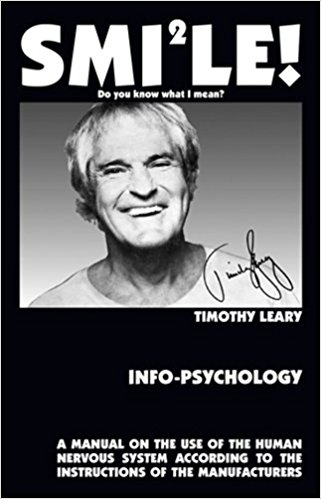
(Dr. Leary explores the real issues of our time--Space Mig...)
Dr. Leary explores the real issues of our time--Space Migration, Intelligence Increase and Life Extension--in this "Manual on the Use of the Human Nervous System according to the Instructions of the Manufacturers." "The Info-Worlds our species will discover, create, explore and inhabit in the immediate future will not be reached from launch pads alone, but also through our personal computer screens."
http://www.amazon.com/gp/product/1561841056/?tag=2022091-20

(Writings that sparkle with the psychedelic revolution. Th...)
Writings that sparkle with the psychedelic revolution. The Politics of Ecstasy is Timothy Leary's most provocative and influential exploration of human consciousness, written during the period from his Harvard days to the Summer of Love. Includes his early pronouncements on the psychedelic movement and his views on social and political ramifications of psychedelic and mystical experience. Here is the outspoken Playboy interview revealing the sexual power of LSD-a statement that many believe played a key role in provoking Leary's incarceration by the authorities; an early outline of the neurological theory that became Leary's classic eight-circuit model of the human nervous system; an insightful exploration of the life and work of novelist Hermann Hesse; an effervescent dialogue with humorist Paul Krassner; and an impassioned defense of what Leary called "The Fifth Freedom"-the right to get high. Writings that sparkle with the psychedelic revolution. The Politics of Ecstasy is Timothy Leary's most provocative and influential exploration of human consciousness, written during the period from his Harvard days to the Summer of Love. Includes his early pronouncements on the psychedelic movement and his views on social and political ramifications of psychedelic and mystical experience. Here is the outspoken Playboy interview revealing the sexual power of LSD-a statement that many believe played a key role in provoking Leary's incarceration by the authorities; an early outline of the neurological theory that became Leary's classic eight-circuit model of the human nervous system; an insightful exploration of the life and work of novelist Hermann Hesse; an effervescent dialogue with humorist Paul Krassner; and an impassioned defense of what Leary called "The Fifth Freedom"-the right to get high.
http://www.amazon.com/gp/product/1579510310/?tag=2022091-20

(Back in print after 20 years, this text from the earliest...)
Back in print after 20 years, this text from the earliest days of psychedelia chronicles the experiences on 16 acid trips taken before LSD was illegal. The trip guides or "high priests" included Aldous Huxley, Ram Dass, Ralph Meltzner, Huston Smith and a junkie from New York City named Willy. It tells of the goings-on and freaking out at the Millbrook mansion in New York State that became the Mecca of psychedelia during the 1960s, and of the many luminaries who made their pilgrimage there to trip with Leary and his group. Chapters include an I Ching reading and a chronicle of what happened during those "spacewalks" of the mind. Back in print after 20 years, this text from the earliest days of psychedelia chronicles the experiences on 16 acid trips taken before LSD was illegal. The trip guides or "high priests" included Aldous Huxley, Ram Dass, Ralph Meltzner, Huston Smith and a junkie from New York City named Willy. It tells of the goings-on and freaking out at the Millbrook mansion in New York State that became the Mecca of psychedelia during the 1960s, and of the many luminaries who made their pilgrimage there to trip with Leary and his group. Chapters include an I Ching reading and a chronicle of what happened during those "spacewalks" of the mind.
http://www.amazon.com/gp/product/0914171801/?tag=2022091-20

(This book tells the inside story of Leary's early LSD res...)
This book tells the inside story of Leary's early LSD research at Harvard. Known throughout the world as the guru who encouraged an entire generation to "turn on, tune in, and drop out," he draws on wit, humor, and skepticism to debunk the power of psychotherapy and to advocate reprogramming the brain with psychedelics. Discussing how various drugs affect the brain, how to change behavior, and how to develop creativity, he also delves into psychopharmacological catalyzing, fear of potential, symbol and language imprinting, and brain reimprinting with Hinduism, Buddhism, and LSD. This book tells the inside story of Leary's early LSD research at Harvard. Known throughout the world as the guru who encouraged an entire generation to "turn on, tune in, and drop out," he draws on wit, humor, and skepticism to debunk the power of psychotherapy and to advocate reprogramming the brain with psychedelics. Discussing how various drugs affect the brain, how to change behavior, and how to develop creativity, he also delves into psychopharmacological catalyzing, fear of potential, symbol and language imprinting, and brain reimprinting with Hinduism, Buddhism, and LSD.
http://www.amazon.com/gp/product/1579510175/?tag=2022091-20
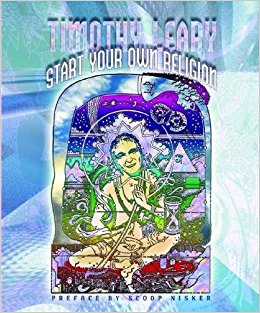
(START YOUR OWN RELIGION embodies the Timothy Leary's core...)
START YOUR OWN RELIGION embodies the Timothy Leary's core attractionexpansive religious (personal) freedom. Become the highest version of yourself! The purpose of life is religious discovery. return to the temple of Godyour ow body. Get of out your mind and get high. Religious living is conscious here-and-now aliveness. He urges readers to drop out, turn on tune in. Drop out and detach from external social drams. Turn on with a sacrament that returns you on to your body. Tune in and be reborn. Leary's message thrilled the youth of the 1960s and it is still appealing today. START YOUR OWN RELIGION embodies the Timothy Leary's core attractionexpansive religious (personal) freedom. Become the highest version of yourself! The purpose of life is religious discovery. return to the temple of Godyour ow body. Get of out your mind and get high. Religious living is conscious here-and-now aliveness. He urges readers to drop out, turn on tune in. Drop out and detach from external social drams. Turn on with a sacrament that returns you on to your body. Tune in and be reborn. Leary's message thrilled the youth of the 1960s and it is still appealing today.
http://www.amazon.com/gp/product/1579510736/?tag=2022091-20
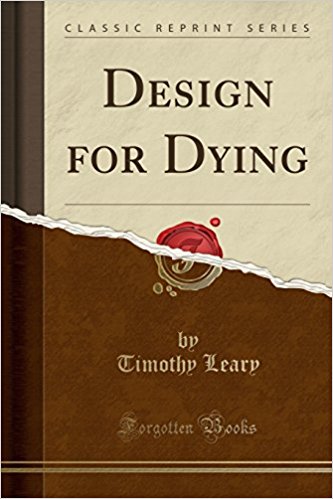
(Excerpt from Design for Dying P A R T T W D D Y I N G 7. ...)
Excerpt from Design for Dying P A R T T W D D Y I N G 7. Dying? Throw a House Party! U 99 8. One Last Taboo for the Road u 1 07 9. Design for Approaching Death u 1 21 1 0. Death Is the Ultimate Trip u 1 31. About the Publisher Forgotten Books publishes hundreds of thousands of rare and classic books. Find more at www.forgottenbooks.com This book is a reproduction of an important historical work. Forgotten Books uses state-of-the-art technology to digitally reconstruct the work, preserving the original format whilst repairing imperfections present in the aged copy. In rare cases, an imperfection in the original, such as a blemish or missing page, may be replicated in our edition. We do, however, repair the vast majority of imperfections successfully; any imperfections that remain are intentionally left to preserve the state of such historical works.
http://www.amazon.com/gp/product/1333214200/?tag=2022091-20
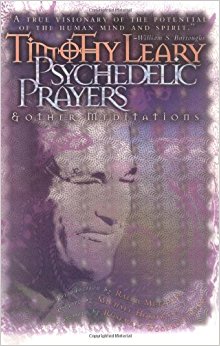
(Written while Leary was visiting India in 1965 and finish...)
Written while Leary was visiting India in 1965 and finished the following year, Psychedelic Prayers is an adaptation of Book 1 of the Tao Te Ching. With a new Introduction by Ralph Metzner, Leary's Harvard colleague, this book of poetry and meditations is being published in its first new edition in 25 years. Illustrations/photos.
http://www.amazon.com/gp/product/0914171844/?tag=2022091-20
Mr. Leary was born on October 22, 1920, in Springfield, Massachusetts, United States. His father, Timothy "Tote" Leary, was a dentist who left his wife Abigail Ferris when Leary was 14.
Timothy Leary was a student of Holy Cross College from 1938 till 1939. Between 1940 and 1941 he studied at United States Military Academy. In 1943 he received his Bachelor of Arts degree from University of Alabama. In 1946 he became Master of Science, after graduating from Washington State University. In 1950 Mr. Leary earned Doctor of Philosophy degree in Psychology from University of California at Berkeley.
Mr. Leary was appointed assistant professor at University of California at Berkeley from 1950 to 1955. He was a director of psychological research at Kaiser Foundation, Oakland, California, between 1955 and 1958. During the period of 1959-1963 he acted as a lecturer at Harvard University. Since 1964 he became a first guide of League Spiritual Discovery.
Starting from 1985 he was a president and concurrently a producer at Futique Inc. (electronic books). From 1953 till 1963 Mr. Leary worked as a psychological consultant to management. In 1961-1963 Timothy Leary served as a consultant at Massachusetts Department Corrections, in 1966-1969 Afghanistan Export Association, Interactive Software Cons., Xor, 1981, Electronic Arts, 1981, Activision, 1986, Epyx, 1988, Autodesk, 1989.
He was a keynote speaker at Ars Futura, Barcelona, Spain, 1989, Siggraph, Dallas, 1990, Ars Electronica, Linz, Austria, 1990, Cyberthon, San Francisco, 1990, Cyberarts, Pasadena, Libertian Party National Convention, Chicago, Design Forum Symposium, Matsue, Japan, 1991, American Humanist Psychology Convention, 1993, Lalapaloosa Festival, 1993. Timothy Leary is a founder of Conscious-Net Electron Bulletin Board (1994).
Mr. Leary died of prostate cancer on May 31, 1996, in Beverly Hills, California.
Timothy Leary is remembered as the psychedelic guru of the 1960s who coined the phrase, "Tune in, turn on, drop out", marketing the hallucinogenic drug lysergic acid diethylamide, commonly known as LSD.
Mr. Leary then founded the League for Spiritual Discovery in Millbrook, New York, where he conducted his researches.
In the 1980s, Timothy Leary turned his attentions to the information industry, designing computer software, mainly programs to enhance the mind.
During his life, Mr. Leary penned dozens of books, made appearances in films such as John Lennon in Montreal, Nice Dreams, and Ted and Venus, and on television talk shows and in episodes of programs like Moonlighting. He also recorded and conducted lectures, among them are The Psychedelic Experience and Turn On, Tune In, Drop Out.
(The first collection of Leary’s writings devoted entirely...)
(This collection of essays, written by the poster boy of 1...)
(Written in the psychedelic era, Turn On, Tune In, Drop Ou...)
(Back in print after 20 years, this text from the earliest...)
(Written while Leary was visiting India in 1965 and finish...)
(The author, a controversial spokesman for the use of psyc...)
(START YOUR OWN RELIGION embodies the Timothy Leary's core...)
(Excerpt from The Game of Life Natural Election occurs at ...)
(This book tells the inside story of Leary's early LSD res...)
(Excerpt from Design for Dying P A R T T W D D Y I N G 7. ...)
(“It is a book for the living as well as for the dying.”—L...)
(Writings that sparkle with the psychedelic revolution. Th...)
(Dr. Leary explores the real issues of our time--Space Mig...)
Candidate for government, California, 1969-1970. Member Alcor Cryonics Life Extension Foundation, 1991. Sponsor Cyberspace Room, Digital Hollywood Convention, 1996.
Member American Federation television and Radio Artists, Screen Actors Guild, American Courseware Association (president 1989), Hemlock Society M C.
In 1945 Timothy Leary married for the first time. His wife's name was Marianne Busch. But the couple divorced in 1955. In 1956 he married Mary Cioppa, they broke out in one year. In 1964 Mr. Leary got married Nena von Schlebrügge, but their family fell apart in 1965.
Timothy Leary married Rosemary Woodruff on December 12, 1967; they divorced in 1976. On December 18, 1978 he married Barbara Chase, but in 1992 their merriage ended. Timothy Leary had three children: Susan, John Busch, Zachary.
